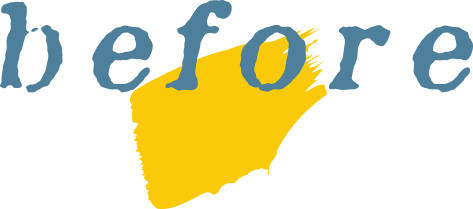What do Barak Obama, Albert Einstein and Elon Musk have in common? It goes without saying that they are characters of great intelligence, but what really unites them is their great capacity for intuition.
Why is intuition important in the company?
Intuition is that ability capable of expanding our intelligence beyond the boundaries of logical reasoning by acquiring new abilities to “know without knowing how” and able to give us brilliant ideas.
In the workplace, the ability to promptly perceive, understand and evaluate a situation is certainly an added value and the Management Costellations method is what is needed.
Management Constellations have the ability to stimulate and represent the client’s intuitions by integrating them with rational logical thinking. It is a tool that, through the scenic representation of the elements, is able to highlight the blocks and hidden dynamics that prevent the resolution of a problem.
In addition to the diagnostic function, the method allows the customer and / or the work team to simulate and evaluate alternative solutions whose results are then translated into concrete action plans.
The effectiveness of the method lies in the synergistic use of three different languages:
- verbal (which helps to understand the mental maps of those involved)
- scenic or movement (which stimulates the implicit individual knowledge)
- visual (facilitating new points of view)
and the combination of the three helps to bring out the feelings and emotions underlying every thought.
A confirmation of the effectiveness of this method comes from neuroscience which have shown how, to every concept used to think and express ourselves, there is a specific emotion that gives meaning and meaning to what we verbalize. Consequently, each emotion corresponds not only to a physical sensation, but also an automatic program of reactions that, during the development of the Management Constellation, the participants experience on a cognitive, physical and emotional level, thus managing to obtain a more comprehensive overview. complete and more difficult to reach through verbal exposure alone.
Examples of using the method: entrepreneurs, managers and HR
- Understanding and managing complex situations by focusing on the dynamics in progress and finding the lever to unlock and untie the knots.
- Deciding in moments of uncertainty especially in a group context where, by highlighting the positions of individuals, it helps to bring together intentions and involve everyone in a shared decision and collective commitment.
- Solve problem situations by bypassing the filters of established beliefs and habits by simulating new actions and ideas.
Develop new strategies through co-creation processes between team members and its leader. - Negotiate win-win solutions thanks to experimentation in order to put yourself in the counterpart’s place.
- Resolve conflicts by putting verbal language in the background in favor of scenic language that dampens strong and difficult to control emotions.
- Optimize the efficiency of processes through simulations that highlight the various bottlenecks and allow you to identify the operations necessary to overcome them.
- Encourage teamwork thanks to the process of co-creation and immediate experimentation of the proposed solutions that creates a strong commitment to the implementation of the decisions taken.
- Support human resource management both in the creation of the candidate profile and in the selection of personnel.
- Manage change thanks to the identification of resistances and the consequent elaboration of new ideas and new communication approaches for a more effective and convincing implementation of innovations.
- Develop the corporate culture by evaluating the impact of values on individuals and system dynamics for their possible evolution.
- Improve the effectiveness of communication thanks to stage simulation through which we can optimize the impact and effectiveness of communication.
Thanks to its versatility, this tool can also be integrated synergistically with other consulting approaches.
Altri articoli
Less stress and more energy thanks to Trust Management
Any corporate context is formed in its fundamental essence by the relationships that develop and define it. And every human relationship is based on the presence (or lack) of trust. This is why it is so important to know how to evaluate, support, improve and develop...
How to get the most out of synergies thanks to collective intelligence
Every group, as we know, forms within itself an entity that is greater than the sum of its parts. But how is it possible to exploit this added value without it becoming, as often happens in the company, a dispersive and inefficient movement? One of the simplest and...
Reduce accidents by changing the perception of the concept of safety
Several studies have shown that business accidents are due in 80% of cases to human errors. Starting from this data, it is obvious that to reduce injuries it is more appropriate and effective to start from the analysis of human behavior, to then understand how to...
How to turn others from enemies into allies
According to Alfred Adler, one of the fathers of psychology, almost all our problems derive from interpersonal relationships: if you think about it, all our emotions derive from something that, from our point of view, does not work in relationships with others. In the...
How to break free from competitiveness with colleagues
We have all perceived, at least once in our life (and perhaps much more than one) a sense of competitiveness; in reality, if you pay attention to it, you will find that competitiveness affects us in almost all life situations, from social ones, in which we want to...
How to write great emails
We now manage them automatically, every day, constantly; they are part of our life, of our routine, they determine our way of working, our relationships, our communication. Yet we don't give them so much importance, sometimes we respond automatically and open them...
Courage in the company: the key to your success
"Having courage" in your business environment means much more than "throwing yourself" or "taking risks", having courage is a concept that has a profound value, it has to do with our identity and the meaning it has for we our life in terms of personal fulfillment. An...
Mindfulness as a resource to work better and with less effort
In recent years you have often heard about mindfulness and the benefits it brings, both personally and professionally, for those who practice it consistently. But exactly why can it be beneficial for our well-being in the workplace? What concrete benefits can it bring...
Developing well-being in the company through emotional intelligence
Everyone talks about IQ, but there is another type of intelligence, equally important because of its enormous impact on our well-being and our decisions: emotional intelligence.First theorized in 1990 by Daniel Goleman, IE can make a difference in the workplace,...
Stop to go faster: how smart breaks can boost productivity
Let's face it: in 2022 the idea that to get the most we must squeeze as much as possible for eight consecutive hours (or more) is no longer credible.Numerous studies confirm that an employee engaged for 8 consecutive hours will see his performance curve drop...











